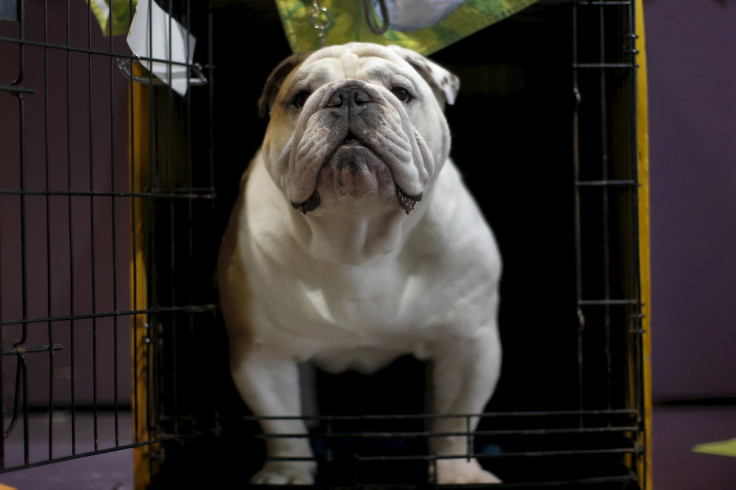English Bulldogs Require Infusion Of New Bloodline To Survive Amid Health Problems, Scientists Say

The cross-breeding of the English Bulldog is required to ensure its survival amid growing health problems, scientists have said. The selective nature of breeding for physical traits has made the Bulldog so inbred it cannot be returned to health unless with an infusion of new bloodlines, a genetic study published Friday in the journal Canine Genetics and Epidemiology suggests.
The U.S. researchers have said that the Olde English Bulldogge, a related breed from America, is likely a candidate. The English Bulldog breed, which is also known as the British Bulldog, has cultural association with the United Kingdom, but has also been adopted worldwide. The breed is of gentle temperament and requires low-maintenance. But the breed suffers from several medical conditions, including breathing difficulties, skin allergies and mobility problems.
"We tried not to be judgmental in our paper. We just said there's a problem here, and if you are going to decide to do something about it, this is what you've got to work with," the co-author of the study, Niels Pedersen, from the University of California, Davis, told BBC News. "If you want to re-build the breed, these are the building blocks you have, but they're very few. So if you're using the same old bricks, you're not going to be able to build a new house."
Pedersen and his colleagues from the Center for Companion Animal Health conducted tests on the DNA of 102 registered English Bulldogs to determine its genetic diversity. However, the results show that the dogs have very low levels of diversity.
"Some small breeds with a small number of registered dogs have attempted this. But it's not common for breeders to admit that they've reached a point with health problems where they have to do something drastic such as reverse breeding," Pedersen reportedly said.
"The fastest way to get genetic diversity is to outcross to a breed that looks similar but is genetically distinct. ... Trying to manipulate diversity from within a breed if it doesn't have much anyway is really very difficult. If all your dogs are highly related to one another, which ones are you going to pick?"
Comparisons between the 102 registered bulldogs and an additional 37 animals suggest there was no difference genetically between the registered animals and dogs from commercial breeders.
"There are some English Bulldogs that can breed normally and give birth normally. There are some that are more mobile than others, there are some that can breathe better than others, some that don't have the skin allergies and auto-immune disorders," Pedersen told BBC.
"But they're relatively few and it's hard to find one individual that contains all of those traits. You may have one English Bulldog that does not have the extreme changes in the head so that they breathe easier, but they may have lots of skeletal problems that lead to extreme arthritis," he added.
© Copyright IBTimes 2024. All rights reserved.





















